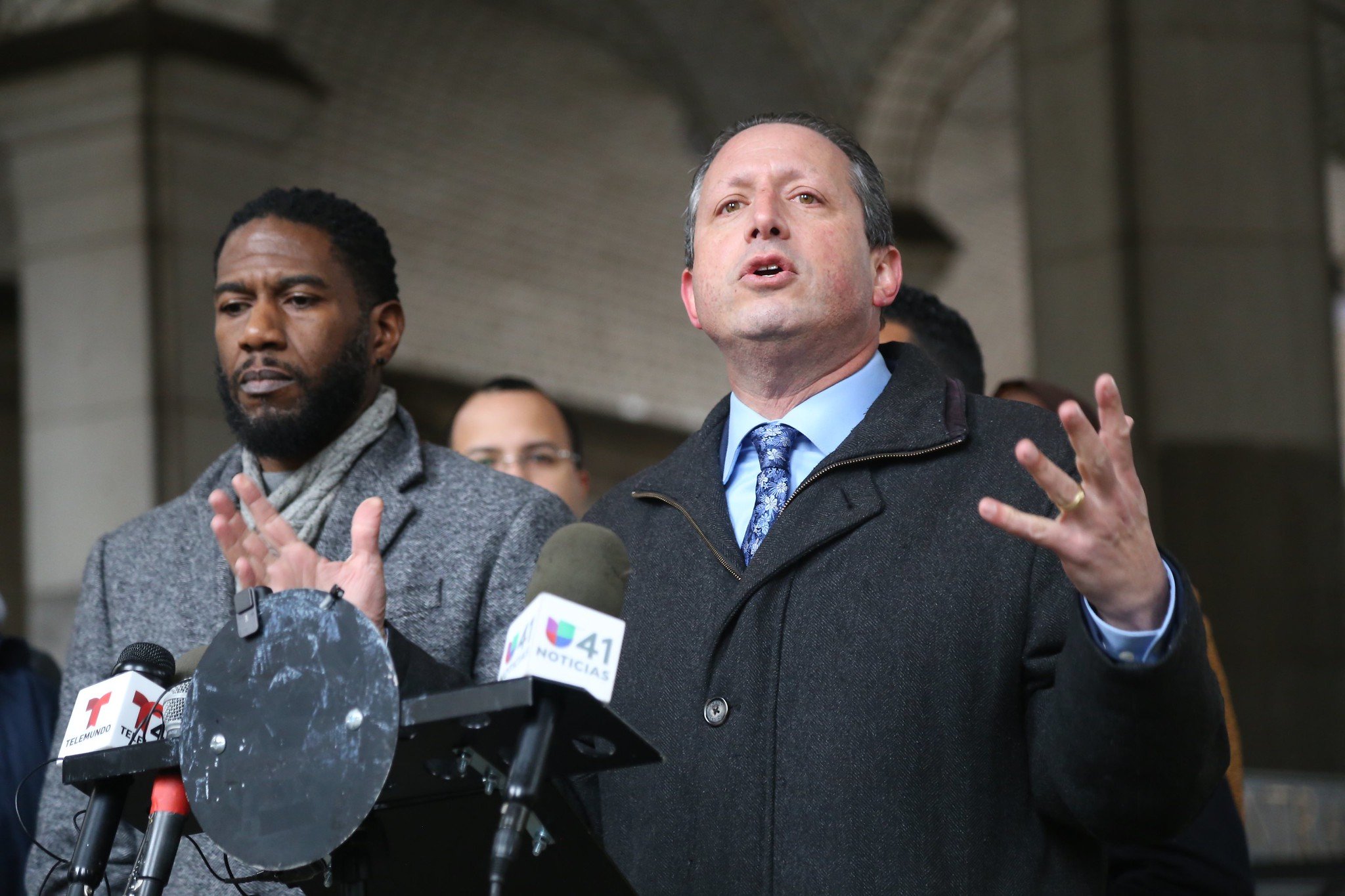Lander asks city to call on courts to slow down eviction cases
/Comptroller Brad Lander called on state court officials to slow the calendaring of eviction cases in order to keep up with representation for tenants. File photo via Comptroller Brad Lander/Flickr
By Ryan Schwach
With new leadership at the top of the state’s courts, New York City Comptroller Brad Lander is calling on the Adams administration to join him in his call for the courts to slow the pace of eviction cases in order to ease the demand on the city’s struggling Right to Counsel program.
In a letter to leadership of the Mayor’s Office of Civil Justice, Lander called on top officials in the Adams administration to request that court leadership slow the calendaring of eviction cases as a result of the increased demand the cases have put on legal services providers working under the Right to Counsel program. The program, which expanded citywide around a year and a half ago, has failed to live up to its expectations as there have not been enough attorneys to represent the crush of tenants facing eviction in the past year, advocates say.
According to Lander, there are 164,285 ongoing eviction cases as of the end of the first week of May, a nearly 60 percent increase in seven months, and 73 percent of tenants facing eviction did not have legal representation. The comptroller says the data shows a violation of the tenant’s Right to Counsel, and that slowing down the pace of cases before the court will allow the providers to catch up.
Concurrently, 95 percent of landlords have representation in the same cases.
Under New York State law, New Yorkers whose income is within 200 percent of the federal poverty level are guaranteed a lawyer when facing eviction proceedings, a law that was passed in 2017 and expanded citywide in January 2022.
“The city must do everything possible to keep New Yorkers in their homes and this includes ensuring that Right to Counsel laws are fully followed and implemented,” Lander wrote in the June 6 letter addressed to the Office of Civil Justice. “Legal representation in housing court has proven to be an incredibly effective intervention to prevent homelessness.”
According to OCJ data cited by Lander, 84 percent of represented residents were able to stay in their homes, evidence that the program would work when fully implemented, advocates say.
In March, OCJ and representatives for the Department of Social Services appeared before the City Council and did not outright express support for the program. Instead, the accused by several city councilmembers of “creating a homeless crisis,” when they were unable to answer a number of questions posed to them by lawmakers concerning the program.
But in a statement to the Eagle, on Tuesday, DSS said that they were supportive of the idea to slow down the calendaring of cases.
"Helping New Yorkers facing eviction stay in their homes is a critical tool to prevent homelessness and reduce housing instability,” a spokesperson said. “We're also supportive of any efforts which would help slow down the calendaring of cases by the courts as we continue to work with our provider-partners to help address any issues with effectively managing their caseloads.
“At-risk tenants remain our top priority and we continue to work to ensure that we are connecting anyone who may have been impacted to appropriate legal services and supports,” the spokesperson added.
Another issue Lander cited is the city’s new strategy of hiring private contractors to make up for the lack of public defense attorneys available to help with representation, since several times last year, public defender firms halted intake for the program.
Lander said that the strategy is “contrary to legislative intent…which states that the city should contract with not-for-profit organizations.”
The Legal Aid Society applauded Lander’s letter, and called for more investment in the program.
"Legal Aid commends Comptroller Lander for supporting our call for OCA to slow the calendaring of cases to a pace that enables OCJ to ensure compliance with its legal obligations,” said Adriene Holder, attorney-in-charge of the Civil Practice at The Legal Aid Society.
“It is also critical that the City properly fund the Right to Counsel program by investing additional funding of more than $125 million to meet existing fixed costs, and increase funding for the program by at least $351 million to ensure that every eligible tenant facing eviction gets a lawyer, especially as our clients and all New Yorkers face a rapidly growing affordability crisis," Holder added.
Both former Chief Judge Janet DiFiore and former acting Chief Judge Anthony Cannataro resisted calls to slow cases in Housing Court, a perspective that could change under the new regime headed by Chief Judge Rowan Wilson and Chief Administrative Judge Joseph Zayas.
Office of Court Administration Spokesperson Lucian Chalfen told the Eagle that the court system is “continuing to standardize a method to measure the rate of legal representation for respondents in Civil Court cases at the time of disposition.”
“Unlike Criminal Court where an attorney is routinely assigned and a Notice of Appearance filed at arraignment, Civil Court cases may not involve the filing of a Notice of Appearance until the second or subsequent appearance, making it difficult to measure the representation rate for cases that are still pending,” Chalfen added.
Further, OCA says that pending cases have dropped 39 percent from last year, and as of May, there were 172,753 eviction cases statewide.
Chalfen also said that as of June 9, around 44 percent of NYC non-payment and holdover cases disposed so far in 2023 had representation, as opposed to those listed as self-represented, and said that number is down 7 percent from last year.




